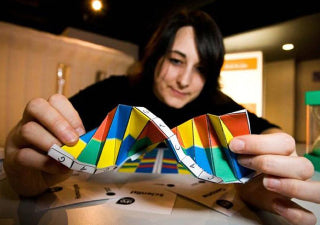This article was originally posted by Jelena Djurkic on MaRS news blog here.
The wedding is still on.
Last year, I got engaged to my boyfriend of seven years. Last week, I took a DNA test to see just how genetically compatible we are.
Toronto biotech startup Instant Chemistry offers genetic testing that can help determine relationship compatibility with a potential partner. Originally designed to help singles narrow down prospective matches, the company has also found success with young couples looking to test their genetic fit.
With more people turning to their laptops and apps to find love—25% of Canadians have tried online dating—codifying attraction at a glance based on gender, location, sexual preference, religion and so on is becoming the norm. So why not add genetics into the mix?
In honour of Valentine’s Day, I decided to give Instant Chemistry a try with my fiancé. What did our results reveal?
How it works
First, here’s a breakdown of how the process works. Each user is assigned an online profile that is tied to their DNA test (based on a saliva sample) as well as an online psychological assessment, developed by a clinical psychologist and unique to the company.
The psychological test poses situational questions that are used to measure how each partner handles conflict based on four interpersonal factors (social, dominant, submissive and intimate behaviour). The genetic analysis examines each person’s serotonin transporter gene and human leukocyte antigen (HLA), or immune system genes.
Why those two genes? Dr. Ron Gonzalez, CEO and one of the co-founders of Instant Chemistry, says they essentially aid in determining how compatible your immune system is to that of your partner and how well the two of you may handle relationship conflict. HLAs drive which bacteria grow on our skin, contributing to our body scent. Studies such as the famous sweaty t-shirty study have found that body odours are linked to sexual attraction and that people are attracted to mates with dissimilar HLA profiles, which helps increase the chances that potential offspring can fight disease. The neurotransmitter serotonin, on the other hand, plays an important role in emotional responses. Understanding your partner’s emotional behaviour is important in dealing with relationship challenges, which can affect overall relationship satisfaction and success, says Gonzalez, who has a PhD in neuroscience from York University. So, after a rather unromantic spitting session with my fiancé last Sunday (“Hey, is this enough spit?”), I shipped off our samples to the company’s lab.
Our results
According to the test, we are an 85% overall match, a rather strong result, Gonzalez says. Most couples get a score between 60-80%; he and his wife, Dr. Sara Seabrooke, one of the co-founders of the company, got 80% on their test. In addition to the overall score, we received 87% on our genetic compatibility, 100% on emotional compatibility (who knew?) and 75% on personality compatibility.
“Both you and your partner carry a copy of long and short serotonin genes [which is why two bands are visible in the second and third columns in the image above],” says Gonzalez. “That’s a good thing because couples who both have the short copy of the gene tend to do poorly in marriage over time; couples who carry either two copies of the long version of the gene or one copy of each do better than those with two short copies.”
What does this mean? There may be a higher chance that our marriage will last—and that the last seven years were “worth it,” as my fiancé jokingly said when we looked through the results.
Gonzalez maintains that while there are critics of genetic matchmaking, the company’s work is rooted in research. Finding out how genetics and psychology may influence your relationship can be one part of the dating process, helping to narrow down prospective matches.
“Just because you get a low score doesn’t mean we’re saying you shouldn’t be together. But if we see any genes that may play a role in marital satisfaction, then we can help young people who are looking to enter into a relationship avoid the people who, based on research, may limit their satisfaction over time,” says Gonzalez, adding that DNA samples collected by the company are destroyed after testing to protect privacy.
Instant Chemistry has partnered with online dating sites such as SingldOut.com that use DNA and specific personality traits to find matches. It also works with matchmaking services to offer an extra layer to dating.
“Most of matchmaking today is an art, based on income and location. We’re trying to add science to the art of matchmaking.”
As for me and my partner, it’s back to wedding planning for us. Too bad there’s no “event planning” gene.
Photo credit: DNA Origami by Duncan Hull used under CC BY 2.0

